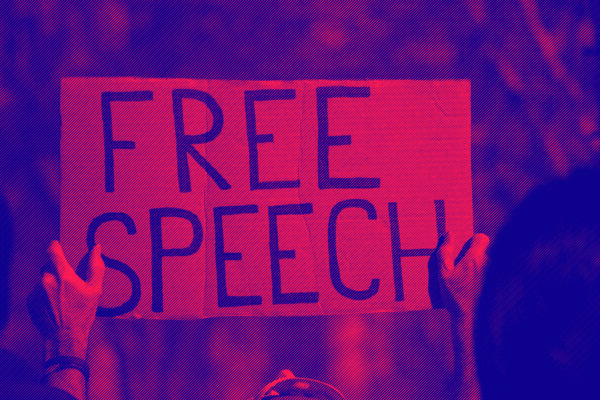Originally published in the spring 2018 Torch
Relying on the generosity of strangers for your next meal is a grueling way to live. Some days you might get your fill to eat and others you might not get so much as a bite. Then there’s the weather to contend with. Standing in the cold for hours on end on a stormy day, will leave you wind-burned and raw. Blistering hot days risk exhaustion and sunstroke. But perhaps even worse than worrying about food or combatting the elements, is dealing with the constant threat of harassment by law enforcement, which antipanhandling laws across the country all but guarantee.
A recent agreement reached by the ACLU and the City of Albuquerque, offers some relief and hope for Albuquerque residents who depend on panhandling to get by, but who live in fear of being cited, cuffed, and even jailed.
In a joint stipulation approved by the U.S. District Court in early February, the City of Albuquerque agreed not to enforce an ordinance that went into effect on December 6, 2017, that restricts speech on medians, freeway entrances, exit ramps, and other areas within the City while litigation about the ordinance is ongoing.
The ACLU of New Mexico and Goodwin Procter LLP filed a lawsuit against the City of Albuquerque in federal court on January 11, 2018, alleging that the ordinance is an unconstitutional attempt to eliminate panhandling by criminalizing speech in public areas where solicitation is common.
“This ordinance has always been about pushing homeless people and poor people out of public view,” said ACLU of New Mexico Staff Attorney, Maria Sanchez
“This ordinance has always been about pushing homeless people and poor people out of public view,” said ACLU of New Mexico Staff Attorney, Maria Sanchez. “We’re relieved that with this agreement in place Albuquerque’s most vulnerable residents will be able to exercise their constitutional rights to solicit the donations they depend on to get by from day to day.”
The joint stipulation prohibits law enforcement from arresting, charging, or prosecuting anyone pursuant to the ordinance. It further prohibits law enforcement from ordering anyone to leave any public place or refrain from panhandling, political advocacy, or similar activities or using the ordinance as a threat in an effort to convince an individual to leave a public place. The City agreed to publicize the terms of the stipulation to its employees, departments, and officers and to ensure they abide by its terms.
“I’m very happy that the City is not enforcing this ordinance until its legality is decided in federal court,” said Mary O’Grady, one of the named plaintiffs in the ACLU lawsuit. “My hopes are high that it will be struck down, as it clearly restricts the speech of the people of Albuquerque unconstitutionally.”
Mary regularly hands out food and water to panhandlers in New Mexico and was homeless as a teenager in Austin, Texas. Under the ordinance she could be cited and arrested for helping people who are just struggling to survive, as she once did.
“It’s a step in the right direction for us,” said John Martin, another named plaintiff in the lawsuit. “Anything that helps us in the meantime is a positive. It’s one less thing the cops can put us in jail for.”
“The police and city officials want us out of sight,” said John


